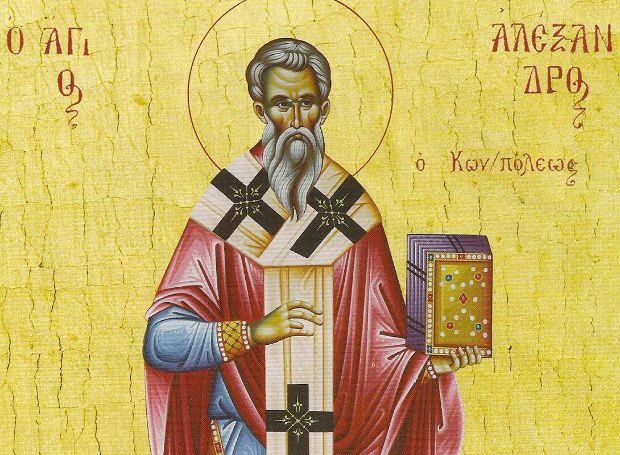Saints Alexander, John and Paul, Patriarchs of Constantinople, lived at different times, but each of them had to confront heretics who were trying to distort the teachings of the Church. Saint Alexander (325-340) served as a vicar bishop during the time of Saint Metrophanes, the first Patriarch of Constantinople.
Due to the advanced age of the patriarch, Alexander represented him at the First Ecumenical Synod at Nicea in 325. After Saint Metrophanes passed away, he left instructions for his vicar to succeed him as the Patriarch of Constantinople. Patriarch Alexander faced challenges from Arians and pagans during his tenure. One notable incident involved a pagan philosopher whom he silenced miraculously, leading to the conversion of the philosopher and others to Christianity. The faithful were amazed by the power of God displayed through Saint Alexander.
Saint Alexander also dealt with the heretic Arius, who tried to deceive the Church. Despite Arius’ false display of allegiance to the teachings of Nicea, Saint Alexander refused to accept him into communion. On the day set for Arius to be received into the Church, divine justice intervened, and Arius met a tragic end. His bowels burst, and he died in a manner similar to Judas.
After a life of devoted service, Patriarch Alexander passed away in 340 at the age of 98. Saint Gregory the Theologian later praised him in a eulogy to the people of Constantinople. The Service to Saint Alexander was published in Venice in 1771, and some ancient manuscripts suggest his commemoration on June 2. Today, he is honored alongside Patriarchs John the Faster and Paul the New.
Saint Alexander was a delegate to the First Ecumenical Council at Nicaea and succeeded Saint Metrophanes as Bishop of Constantinople in 325. His discernment regarding Arius prevented a disastrous outcome for the Church. Saint Alexander’s successor, Saint Paul the Confessor, later martyred by the Arians, continued his legacy. Saint John, also commemorated here, served as Patriarch of Constantinople in the sixth century. Another Saint Paul, Bishop of Constantinople in the late seventh century, presided over the Quinisext Council.

